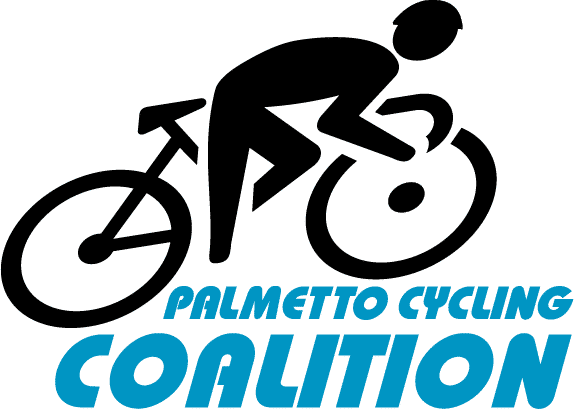Communities for Cycling, Innovative Bikeway Design Workshop
On October 8, approximately 10 planners and engineers within our Communities for Cycling (C4C) network participated in a workshop in Columbia to learn about innovative bikeway designs, referencing the National Association of City Transportation Officials (NACTO) Urban Bikeway Design Guide. Our C4C network emerged from the Mia Burke tour in 2011, based on overwhelming interest in learning model roadway designs.
From bike boxes to protected bike lanes, we learned the full spectrum of bikeway designs built and utilized in cities around the USA. The workshop was taught by two pioneers in the field of bikeway design, employed by ALTA Planning: Nick Falbo, Transportation Planner, and Joe Gilpin, Principal. It should go without saying that these bikeway designs are a stellar and cost-effective infrastructure investment for any city, but here at PCC we don’t want to miss an opportunity to reiterate that. Joe Gilpin stated that Portland created their 6% bike commuter mode share by building their bikeway network for the same price as building 1 mile of freeway.
We learned everything under the sun in urban street bikeway designs, including bike lanes, protected bike lanes (cycle tracks), intersection treatments, signals, signs & markings, and bicycle boulevards. Six staff from our South Carolina Department of Transportation (SCDOT) were on hand to learn about these bikeway designs, and we appreciate their participation. In the interests of our C4C network, PCC asked Rob Bedenbaugh of SCDOT which innovative bikeway designs would SCDOT get behind. We asked this in the context of which designs are most likely to be allowed today, and which may take some time for SCDOT to evaluate. He stated SCDOT would allow buffered bike lanes today, and they will consider other designs in the future on a case by case basis. Contact PCC if your city would like assistance talking with SCDOT about how to make your streets safer for biking through better design.

Kelly Mezzapelle, C4C member and City of Myrtle Beach planner, stated this about the training:
“The workshop was not only informative, it provided opportunities for hands-on solutions to typical routing issues. I learned more about some routing techniques with which I was familiar (like different types of bike lanes), and also learned about some techniques with which I was unfamiliar (like Bicycle Boulevards). I will definitely be taking these valuable lessons back and applying them in my town.”
Thanks to the following C4C participating cities for attending: City of Mauldin, City of Myrtle Beach, Charleston County, Aiken County, City of Camden, Clemson University, City of Cayce, City of Columbia, and the Lower Savannah Council of Governments.
And finally, we owe a thanks to the City of Columbia for sponsoring this one-of-a-kind workshop as they implement their new Pedestrian and Bike Master Plan, and for opening up attendance beyond their own staff to the larger C4C statewide network of planners and engineers. Their Master Plan contains prescriptions for many innovative NACTO designs, including a few protected bike lanes on streets with high demand for bicycling, so we commend them for inviting our C4C network and SCDOT to attend, learn, and participate in this excellent workshop.
